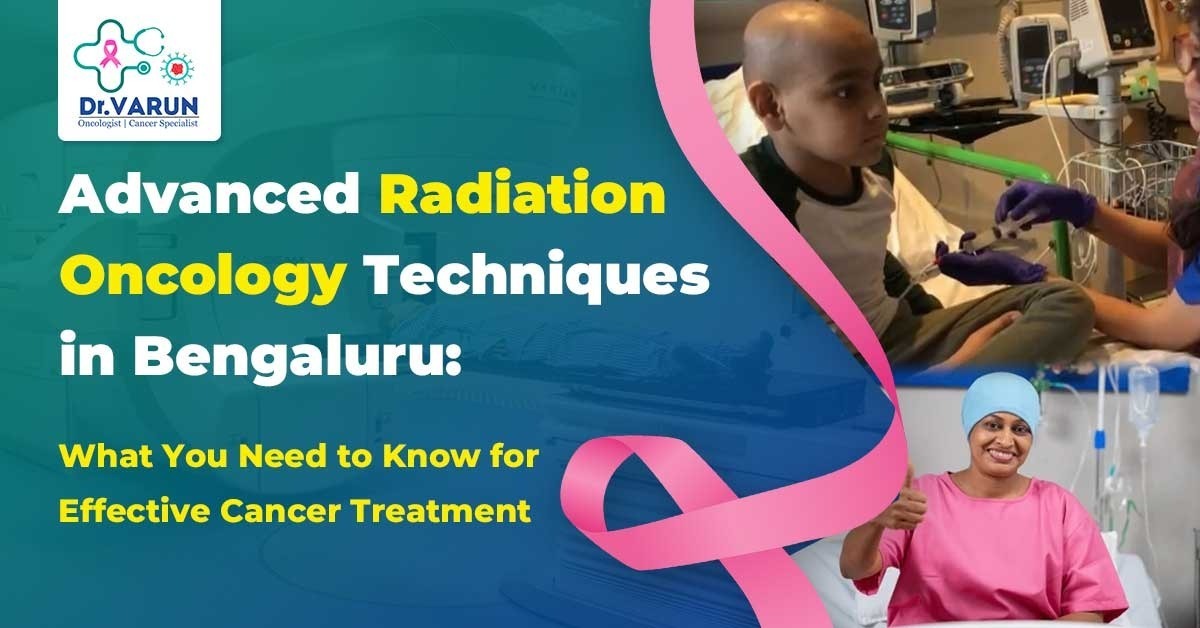Introduction
Cancer treatment has seen remarkable advancements over the years, with radiation oncology playing a pivotal role in managing and eradicating cancer cells. Bengaluru, known for its cutting-edge medical facilities, offers some of the most advanced radiation oncology techniques available today. For patients seeking effective cancer treatment, understanding these techniques and knowing where to find the best oncology hospital in Bangalore is crucial.
Radiation oncology treatment involves using high-energy radiation to target and destroy cancer cells while minimizing damage to surrounding healthy tissues. This blog delves into the latest advancements in radiation oncology available in Bengaluru, providing valuable insights into what patients can expect and where they can receive top-notch care.
Advanced Radiation Oncology Techniques in Bengaluru
1. Intensity-Modulated Radiation Therapy (IMRT)
IMRT is a sophisticated form of radiation therapy that allows oncologists to modulate the intensity of the radiation beams. This precision targeting enables the delivery of higher radiation doses directly to the tumor while sparing healthy tissues. IMRT is particularly effective for treating tumors located near critical structures, such as the brain, spinal cord, and prostate.
2. Image-Guided Radiation Therapy (IGRT)
IGRT combines advanced imaging techniques with radiation therapy, allowing for real-time imaging during treatment. This ensures that the radiation beams are accurately aligned with the tumor, even if it shifts due to patient movement or changes in the body’s anatomy. IGRT improves the precision of radiation delivery, reducing the risk of side effects and enhancing treatment outcomes.
3. Stereotactic Body Radiation Therapy (SBRT)
SBRT is a highly precise radiation therapy that delivers high doses of radiation to small, well-defined tumors in fewer treatment sessions. This technique is often used for early-stage lung cancer, liver tumors, and other small cancers that are inoperable or located in difficult-to-reach areas. SBRT’s accuracy minimizes damage to surrounding healthy tissues, resulting in fewer side effects.
4. Proton Therapy
Proton therapy is an advanced form of radiation therapy that uses protons instead of traditional X-rays. Protons deliver their maximum energy directly to the tumor site, with minimal exit radiation, thereby reducing exposure to surrounding healthy tissues. Proton therapy is highly effective for treating pediatric cancers, brain tumors, and other complex cases where precision is paramount.
5. Brachytherapy
Brachytherapy involves placing radioactive sources directly inside or near the tumor. This internal radiation treatment allows for a high radiation dose to the tumor while sparing surrounding tissues. Brachytherapy is commonly used for treating prostate cancer, cervical cancer, and breast cancer. It can be administered in a short period, making it a convenient option for patients.
Choosing the Best Oncology Hospital in Bangalore
Selecting the best oncology hospital in Bangalore is a critical step in ensuring effective cancer treatment. Here are some factors to consider:
- Advanced Technology: Look for hospitals equipped with state-of-the-art radiation oncology equipment and facilities.
- Experienced Oncologists: The expertise of the medical team, including radiation oncologists, medical physicists, and support staff, is crucial for successful treatment.
- Comprehensive Care: Opt for hospitals that offer a multidisciplinary approach to cancer treatment, including surgery, chemotherapy, and supportive care.
- Patient Reviews: Research patient testimonials and reviews to gauge the quality of care provided by the hospital.
- Accreditation: Choose hospitals that are accredited and recognized for their excellence in cancer treatment.
FAQs about Radiation Oncology Treatment
1. What is radiation oncology treatment, and how does it work?
Radiation oncology treatment uses high-energy radiation to target and destroy cancer cells. The radiation damages the DNA of cancer cells, preventing them from growing and dividing. Over time, the cancer cells die off, and the tumor shrinks. Radiation therapy can be used alone or in combination with other treatments like surgery and chemotherapy.
2. What are the potential side effects of radiation oncology treatment?
The side effects of radiation therapy vary depending on the treatment area and dose. Common side effects include fatigue, skin irritation, and changes in appetite. Specific side effects depend on the treated area, such as hair loss when treating the head or neck. Most side effects are temporary and can be managed with the help of the medical team.
3. How long does a typical radiation therapy session last?
A typical radiation therapy session lasts about 15-30 minutes, although the actual time the patient spends receiving radiation is usually only a few minutes. The rest of the session involves positioning the patient and ensuring accurate targeting of the radiation beams.
4. Is radiation therapy painful?
Radiation therapy itself is not painful. However, some patients may experience discomfort from lying still during treatment or from side effects like skin irritation. The medical team will provide support and strategies to manage any discomfort.
5. How do I prepare for radiation therapy?
Preparation for radiation therapy involves several steps, including a consultation with the radiation oncologist, imaging scans to determine the exact location and size of the tumor, and creating a personalized treatment plan. Patients may be advised to follow specific instructions regarding diet, medications, and skincare before starting treatment.
Conclusion
Radiation oncology treatment in Bengaluru has advanced significantly, offering patients access to cutting-edge techniques that enhance precision, reduce side effects, and improve outcomes. From IMRT and IGRT to proton therapy and brachytherapy, these advanced treatments provide hope and healing for cancer patients.
Choosing the best oncology hospital in Bangalore is crucial for receiving high-quality care. Look for hospitals with advanced technology, experienced oncologists, comprehensive care, and positive patient reviews. With the right treatment and support, patients can embark on their journey to healing with confidence.
If you or a loved one is facing cancer, explore the advanced radiation oncology treatments available in Bengaluru. Consult with experts at the best oncology hospitals in Bangalore to develop a personalized treatment plan that meets your needs. Your journey to effective cancer treatment starts here.

